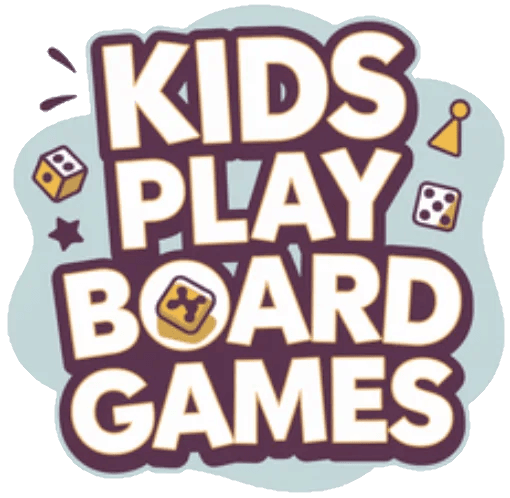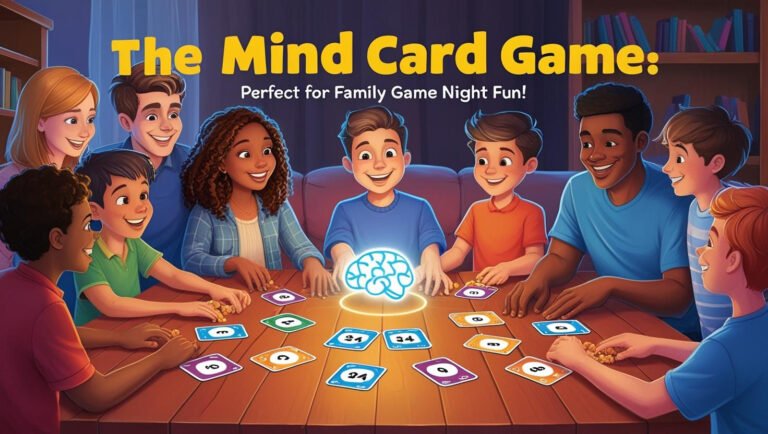Escape from Forbidden Island: A Family Bonding Guide to Cooperative Board Gaming

Why Forbidden Island is Perfect for Families
Forbidden Island isn’t just a game—it’s an adventure that brings families together. In this cooperative board game, players work as a team to collect treasures and escape before the island sinks. It’s easy to learn, exciting to play, and perfect for family game night.
I’ve played Forbidden Island with my wife, daughter, and even friends, and every time, it strengthens our bond. Whether you’re strategizing, laughing at mistakes, or cheering for victories, this game creates memories that last.
1. The Magic of Playing Together
Cooperation Over Competition
Unlike games where one person wins and everyone else loses, Forbidden Island encourages teamwork. You win or lose as a family. This shifts the focus from rivalry to collaboration, making it ideal for bonding.
discover how this engaging game brings families together through teamwork and strategy. To explore similar games, check out our Forbidden Island vs. Forbidden Desert vs. Forbidden Sky comparison for a breakdown of the series. Dive deeper into the gameplay with our Forbidden Island review . For more fun, strategic options, explore these 10 board games like Sushi Go . On a budget? Find the best cheap cooperative board games perfect for family game nights.
One evening, my daughter was struggling to figure out her next move. Instead of taking over, we worked together to find a solution. Seeing her confidence grow was priceless.
2. Tips for Playing with Different Age Groups
For Younger Kids (6-8 Years)
- Keep it simple. Stick to Novice or Normal difficulty.
- Assign them roles like Pilot or Messenger—easy characters to understand.
- Celebrate small wins, like saving a tile or sharing a card.
My daughter started playing at age 7. At first, she needed guidance, but soon she was leading the team!
For Tweens and Teens (9-14 Years)
- Increase the challenge by raising the water level or adding house rules.
- Encourage them to take charge of strategies.
- Let them mentor younger siblings if they’re playing too.
Teens love the thrill of harder modes. One time, my nephew came up with a plan to save Fools’ Landing just in time—it was a proud moment for everyone.
For Adults and Mixed-Age Groups
- Balance the gameplay by pairing younger kids with adults.
- Use teamwork to teach problem-solving skills.
- Add fun twists, like role-playing your characters’ personalities.
During one game, my wife joked about being the “Daredevil Diver,” which made us all laugh. These little moments make the experience special.
For a deeper dive, explore the Forbidden Island vs. Forbidden Desert vs. Forbidden Sky comparison to see how the series evolves. Get more insights with our Forbidden Island review and learn valuable teamwork lessons . Simplify gameplay with our step-by-step setup guide and teaching guide . For families seeking variety, try these advanced player challenges or explore 10 board games like Sushi Go for more fun. On a budget? Check out the best cheap cooperative board games for affordable family entertainment.
3. Social and Emotional Benefits of Playing Together
Building Communication Skills
Forbidden Island requires constant communication. Players must share information, plan moves, and support each other.
Once, my wife and I had to whisper our strategy because we were using the “limited communication” house rule. It felt silly but taught us how to adapt under pressure.
Boosting Confidence and Teamwork
Kids especially benefit from seeing their contributions matter. Whether it’s shoring up tiles or finding the right cards, every action counts.
After one game, my daughter said, “I didn’t think we’d make it, but we did!” That sense of accomplishment stayed with her long after the game ended.
Creating Lasting Memories
The best part of Forbidden Island is the shared experience. Winning feels amazing, but even losing can be fun when you’re laughing together.
One game ended in defeat, but we spent the next hour talking about what went wrong and how we’d do better next time. Those conversations are just as valuable as the game itself.
4. How to Make Family Game Night Special
Set the Mood
- Dim the lights and use candles to create an “island adventure” vibe.
- Play ocean sounds or soft music in the background.
Add Snacks and Drinks
- Serve themed snacks like goldfish crackers or tropical fruit.
- Have drinks ready, like lemonade or sparkling water.
Celebrate Wins (and Losses)
- Cheer loudly when someone makes a great move.
- If you lose, talk about what you learned and try again.
5. Final Thoughts: Strengthen Your Family Bonds Through Play
Forbidden Island is more than just a game—it’s a way to connect with your loved ones. Whether you’re strategizing, laughing, or simply enjoying each other’s company, it’s a bonding activity that everyone can enjoy.
So gather your family, set up the island, and dive into the adventure. You’ll discover that the real treasure isn’t the artifacts—it’s the memories you create along the way.
FAQs About Forbidden Island for Family Game Night
Is Forbidden Island good for young kids?
Yes! With simpler roles and lower difficulty levels, it’s perfect for ages 6 and up.
How long does a game usually take?
About 30 minutes per session, making it ideal for busy family nights.
What if someone gets frustrated?
Encourage teamwork and remind everyone that winning isn’t the goal—it’s about having fun together.






